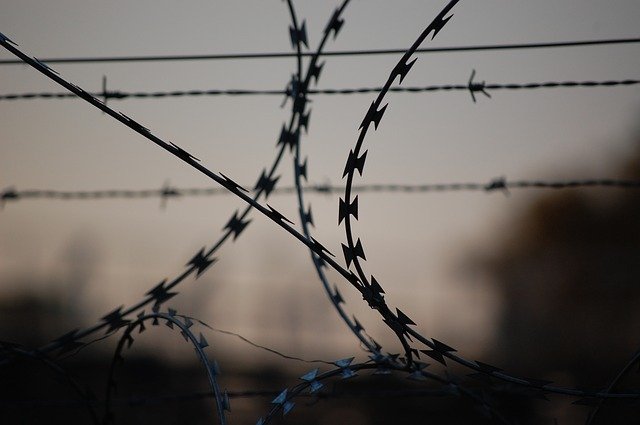By J.M. Phelps (One News Now)
According to an author and expert on counter-terrorism, a legislative solution to protecting America from terrorists being released from prison isn’t simply found in them serving their full sentences, but in the “stringent” supervision that could follow their release.
Patrick Dunleavy, author of the Fertile Soil of Jihad: Terrorism’s Prison Connection, weighs in with OneNewsNow on the effectiveness of legislation that’s been drafted to prevent the early release of terrorists from prison. For a number of reasons, he considers the legislation proposed by Rep. Clay Higgins (R-Louisiana) (H.R.3067) and Sen. Tom Cotton (R-Arkansas) (S.1684) to be “minimally effective.”
First, he points out the topic of administering “good conduct time” allowance is a narrow subject.
“[The legislation] does not address subsequent issues such as radicalization, de-radicalization, or post-release supervision conditions,” adds the former deputy inspector general of the Criminal Intelligence Unit of the New York State Department of Correctional Services.
Dunleavy describes the legislation as “reactionary [and] not proactive [because] it comes only after the public outcry when known terrorists, such as John Walker Lindh or Kevin James, are released [from prison]” – adding “this is a poor way to combat terrorism.”
A press release from Sen. Cotton’s office in May 2019 identifies Lindh as “the first person convicted of terrorism charges in the War on Terror…,” and Dunleavy is quick to reveal this is an inaccurate statement. The elite investigator cites dozens of others who have been arrested, convicted, and even released, including El Sayyid Nosair, the Lackawana Six, the Virginia Jihad Case, and others.
While Congress is consumed with the Democrat-led impeachment of President Donald Trump and rising tension in the Middle East, Dunleavy doesn’t expect either bill would ever pass. In fact, he believes, the Tracer Act was “a much more effective counter-terrorism bill which was passed by the House two years ago, [but] died in the Senate after public interest in the subject waned.”
In fact, Dunleavy believes Congress would be hard-pressed to pass any legislation on the subject that would hold up to being examined by the U.S. Supreme Court.
“Many defense attorneys would challenge it as a violation of religious freedom,” he contends, then poses this question as an example that could come up in a challenge: “Does the government have the right to force an inmate to change his religious beliefs?”
Dunleavey admits “some Islamic theology may be twisted, but it is recognized as a religion and granted certain protections by the Constitution.”
That said, “the most effective path – certainly the one that would be most successful in passing – is legislation that addresses the post-release supervision of terrorists,” he argues. This is the area in which he suggests mandating “stringent conditions [to] limit the released terrorists’ activity.” Such mandates could require monitoring their associations, social media activity, internet use, phone use, travel plans, and more.
Dunleavy doesn’t place any blame at the foot of the prison system.
“Prison administrators want to do the right thing when it comes to radicalization,” he shares, “[but they] are often hamstrung with a list of other mandates that take up their resources.
“Rehabilitation or de-radicalization programs are good, but they are often designed by well-meaning social advocates who view terrorism as just another form of criminal behavior – not a uniquely distinct [criminal act],” he describes.
Dunleavy then concludes: “The prison system, as a whole, is a huge bureaucracy that falls under different jurisdictions,” to include federal, state, and local governments. “[Thus], changing federal ‘good behavior’ laws would not affect state corrections operations.”
J.M. Phelps is a Christian activist and journalist based in the Southeastern U.S. He is also editor and publisher of the website Lantern of Liberty.
Originally published by One News Now on Wednesday, January 8, 2020.
This column is printed with permission. Opinions expressed in columns published by Lantern of Liberty are the sole responsibility of the article’s author(s), or of the person(s) or organization(s) quoted therein, and do not necessarily represent those of the staff or management of, or advertisers who support Lantern of Liberty.






